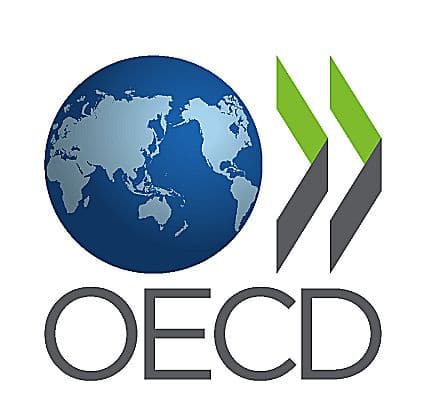Rome, 13 November - Life expectancy in Italy is among the highest in the OECD area. Obesity rates are low (but high among adolescents), while alcohol consumption, the percentage of habitual smokers and air pollution are very close to the average for OECD countries. Access to treatment is universally guaranteed and assistance is of good quality, but there are still too many differences in access and treatment of citizens between the various Regions and too many antibiotics are prescribed. All this, with health expenditure that in our country is slightly lower than the OECD average.
To sum it up in a few words, this is the picture that emerges from relationship Health at Glance 2017 of the OECD, the international body for development and economic cooperation, published last November 10 to offer the most recent data and comparable trends on the performance and results of the health systems of the various countries, a report which this year presents a series of new indicators, especially on health risk factors.
The data relating to the Italian health system are, as usual, a mix of lights and shadows. On the one hand, in fact, we are fourth in the world in terms of life expectancy (82.6 years) and we are able to offer universal health coverage to all citizens, even at costs lower than the OECD average ($3,400 per per capita, against the average of 4000) of our country, with an incidence of health expenditure on GDP equal to 8.9%, in perfect line with the 9% OECD.
On the other hand, however, “they still cause great concern”, as the OECD writes, the inequalities in access and quality of treatments between the various Regions. While acknowledging the efforts made, in a context of heavy budgetary constraints due to the financial crisis, to implement a reform capable of maintaining and improving the health supply, the report cannot fail to express - in the light of the data - "concern about the ability of individual Regions to ensure the provision of expanded services. Despite universal coverage, the southern regions are
Critical remarks have also been advanced, if not on the "how much", on the "how" Italy spends on health. In fact, the OECD underlines that the effectiveness of health expenditure needs to be improved, also providing a series of precise observations. The first concerns the introduction of generics, an item that sees Italy in the group of the worst, with an incidence of equivalents on the total consumption of drugs equal to 8% in values and 19% in volume. Data decidedly insufficient when compared to those of other countries, despite the efforts made to increase the share. According to the OECD, the invitation to doctors to indicate to patients the active ingredient of the prescribed medicine instead of the brand name can help facilitate the transition to generic medicines, as can a policy of incentives to be recognized to doctors and pharmacists.
Also in the shadows is the excess of antibiotic prescriptions (with negative effects, moreover, on expenditure), which in the opinion of the OECD must be absolutely reduced: Italy is in fact in fourth place among the countries that prescribe more antibiotics, situation that does not fit well with the need to implement effective strategies for the prevention of antimicrobial resistance.
In the "lights" chapter, however, the OECD report highlights the low level of obesity recorded in our country (10.3% of obese people in the adult population), but launches a warning on the increase in "flab" among adolescents.
As regards other risk factors taken into consideration by the report, such as smoking or alcohol consumption among adults, our country is more or less in line with the OECD averages.
For the Minister of Health Beatrice Lorenzin, what emerges from Healt at Glance 2017 is an overall positive assessment of Italian healthcare, which can only be welcomed with satisfaction: “The OECD highlights how our country confirms its leadership in the world for life expectancy, underlines how good the health indicators on the main pathologies are and underlines the high quality of the treatments that are offered to our citizens every day" has underlined the holder of the department, which he also immediately jumped at the opportunity to recall the results achieved by its government action on some of the issues indicated by the OECD report.
“First of all, I am thinking of the aging of the population, an issue that embraces the future of our society and on which as Minister of Health I have deployed considerable measures and resources, I am thinking of the numerous services introduced with new Lea (which were 16 years), the National Dementia Plan, the Chronicity Plan and the funds for innovative and oncological drugs. All
As regards "the age-old question of regional inequalities, which increased after the reform of Title V of the 2001 constitution", Lorenzin recalled the attempts made to involve the Regions (“within the limits of the competence of the ministry”) first with the Pact for Health and then with the creation of the task force of inspectors, with the hospital efficiency plans and with the introduction of new selection criteria for managers focusing on quality and experience and not on mere discretionary factorsthe. "Now the hope is that in the next five years, together with the Regions, we can all together achieve the goal of having uniform treatments throughout the national territory".
"The issues to be resolved - has concluded the minister – there are still many but it is undeniable that many reforms have been made in recent years (the likes of which have not been done for years) which have laid the foundations for making our NHS increasingly efficient and sustainable in the future as well. Now we have to consolidate the work done and the positive judgment that emerged from the OECD, as well as the critical issues, must also give us hope for the future of our health care ".
